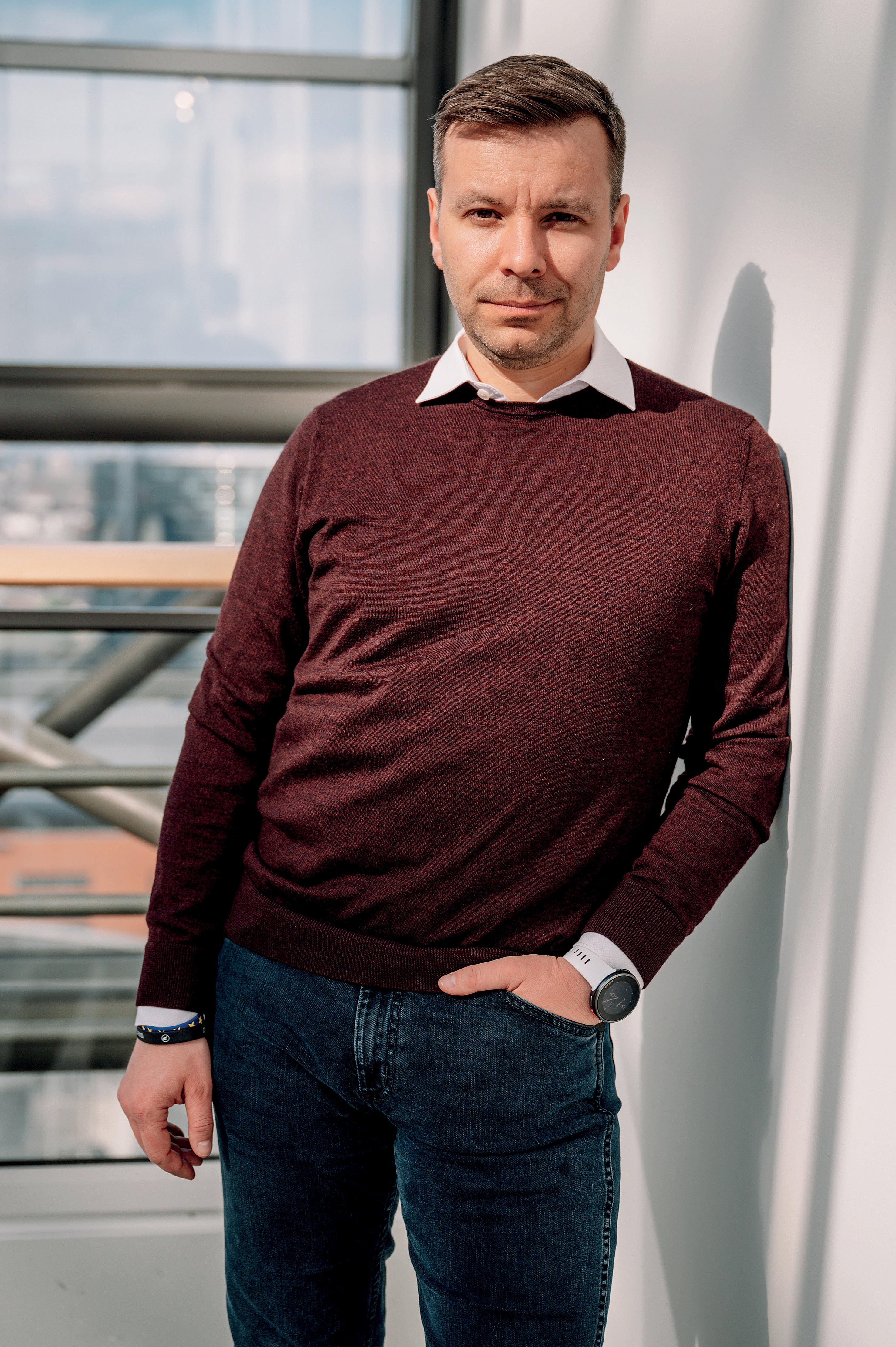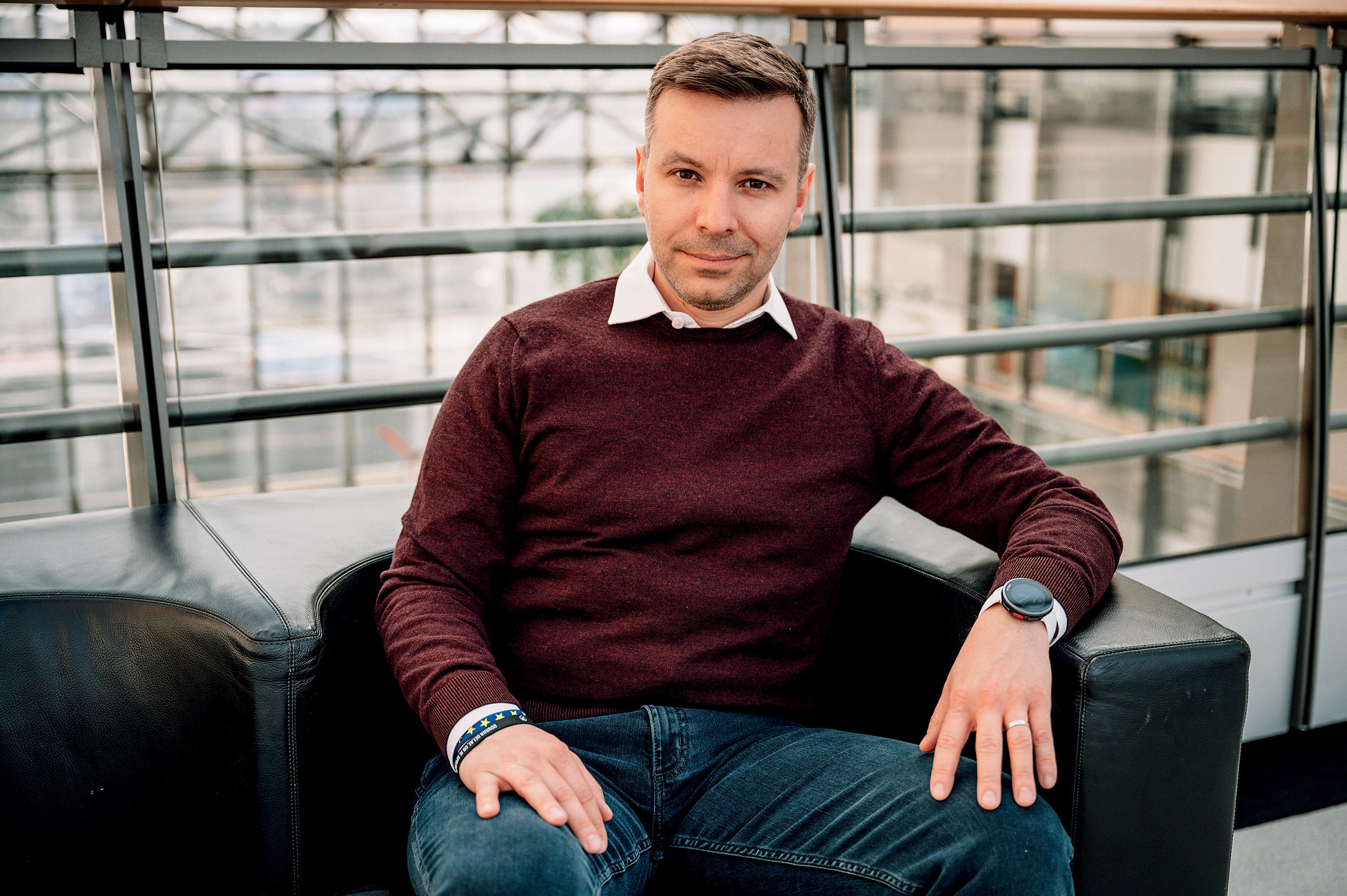Next year, the First Vice-chair of the Pirate Party will be defending his seat as a member of the European Parliament. He is a proponent of the Green Deal and stricter norms for combustion engine cars but is not against nuclear energy, and has also been fighting for open source technology, freedom on the internet, and media independence since his college years.
The Pirates are the only government party managing to hold steady polling numbers. What is the secret of the Pirate's success?
I wouldn't call it a secret. Pirate politicians on all levels – from municipal politics to the government and the Chamber of Deputies and even the European Parliament – simply do honest work. We have no corruption scandals, we don't favor lobbyists; instead, we stand with the people and take steps to ensure that we can all live happier lives.
Are you confident in winning the European Parliament election, similar to how the Progressive Slovakia party managed it in Slovakia five years ago? A party that former PM Andrej Babiš recently compared you to...
I see the comparison with Progressive Slovakia as more of a compliment from MP Babiš. Because I hold its chairman Michal Šimečka, whom I've sat beside in the European Parliament Bureau for years, in high esteem. Progressive Slovakia ran in 2019 as part of a coalition. The Pirates are the only authentically pro-European, liberal party, so we're running on our own in next year's election. A good politician needs to have a vision while also standing with their feet firmly on the ground and, looking at the current polls, even though they're focused solely on the Chamber of Deputies election, I don't consider an all-out victory in next year's election to be an entirely realistic goal. But never say never, of course.
Do you yourself want to stay in the European Parliament? How are you coping with the constant travel that is closely tied to the life of an MEP?
I do want to stay. In September, members of the Pirate Party elected me to lead our ticket in next year's election. The work of an MEP doesn't just involve constant travel but also an immense amount of work, which can be exhausting from time to time. But, so far, it makes sense to me. Before I was elected in 2019, I worked in the IT sector. At the time, I was extremely frustrated by the fact that people who might be experts in other fields but have virtually no understanding of IT were making decisions in the European Parliament about matters closely related to my field. I now have the opportunity to do things right, and I'm very happy about the various successes I've had.

The Pirates have been in the Greens group for nearly five years now in the European Parliament. Should the increasingly extremist ANO movement be expelled from the liberal group, would you consider switching sides after the election? Or are you feeling cozy with the Greens, so to speak?
Pirates have been a part of this political group since 2009. Meaning our Swedish and German colleagues, of course. In 2019, the Czech Pirates, together with their German colleagues, joined the political group that allowed us to most effectively pursue the Pirate program in the European Parliament. We are planning to do the same now, once again in conjunction with other European Pirate parties. Political groups on the far left are naturally entirely off the table, meaning The Left, where KSČM is a member, as are those on the far right, meaning the ECR, where ODS is a member, and ID, with SPD as a member.
The Pirates, at least the Czech ones, are proponents of using nuclear power in the energy industry. Are you the only ones holding this stance among the Greens, and how does that complicate your functioning within the group?
A rather skeptical stance on nuclear is indeed predominant among the Greens. We are not forced to share those views, however. We hold our own stance, meaning the use of nuclear if it makes sense economically, and the Greens respect that.
The European Parliament has officially adopted a less stringent position on the Euro 7 standards. Instead of exulting, you called it a travesty. Why?
Because it is a travesty. The shape of Euro 7 negotiated in the European Parliament by ODS rapporteur Alexandr Vondra contains things such as a decrease of NOx limits so minuscule that, although meeting the limits will put a strain on the automotive industry, it will offer virtually zero reprieve to the environment. The new regulations will only come into force a few years hence. This means that car manufacturers will be forced to invest in combustion engine vehicles, which will have minimal sales in Europe at the time when Euro 7 standards start coming into effect due to the current sharp rise in sales of electric cars. It would just be better to let car manufacturers focus fully on developing new electric cars instead of having to worry about NOx limits. On the other hand, I will admit that things such as measuring brake pad emissions, which are contained within the standards, do make sense. However, in that case, we could have just implemented a simple update of the Euro 6 standards and avoided making the lives of car manufacturers harder.
Is the energy crisis of the last two years a validation of the Green Deal, or does it highlight its failures instead? Why are the Czech people forced to deal with the highest electricity prices in Central Europe?
The Czech people are faced with the highest electricity prices around because previous governments focused on making out the Green Deal and the ecological transformation in general to be the bogeyman instead of investing in renewable energy sources. The energy crisis has clearly confirmed that we need the Green Deal. If we had been more sensible and built up wind farms and solar plants, we could be producing electric power at lower prices. Furthermore, we wouldn't have been forced to deal with such dependence on Putin during the initial stages of Russia's aggression against Ukraine. Renewables are the way to become energy-independent while also having cheap electricity. We need to take the money provided to us by the European Union for the modernization of our energy network and use it wisely. Other countries are doing just that. And their power is cheaper.
Are you clearly on the side of Israel in the Israeli-Palestinian conflict in Gaza? And how does the same look among the Greens in the European Parliament?
The entirety of the Pirate Party, myself included, is unequivocal in its condemnation of the horrid actions taken by the Hamas terrorist organization and we support Israel in its right to defend itself. After all, it was our very own Minister of Foreign Affairs Jan Lipavský who visited Israel as the first foreign statesman following the October 7 attacks and expressed his support. At the same time, we are drawing attention to the catastrophic humanitarian situation in the Gaza Strip. I cannot speak for the Greens, but I am certain that they have a lively discussion going about just how intensely they should be calling out the mistakes of Benjamin Netanyahu's government. What we can all agree on is the need to stand against terrorism while also considering the lives of the civilian population.
The author is a European editor for Deník

CV BOX
Marcel Kolaja (born June 29, 1980, in Moravská Třebová) is a member of the European Parliament for the Pirates.
He graduated from the Masaryk University Faculty of Informatics. He has always been interested in open source software, taking part in the development of cron-apt, a piece of software for automatic regular system updates, and helping localize Apache server error messages into Czech. As a member of the Czech Association of Linux Users, he actively opposed the implementation of software patent protection in the European Union.
He joined the Czech Pirate Party in 2010 and has been its first vice-chair since last year. The 2019 election saw him win a seat in the European Parliament, where he had held the post of vice-president until January 2022, and now serves as a quaestor.
Kolaja is also a member of the Committee on the Internal Market and Consumer Protection (IMCO), the Committee on Culture and Education (CULT), and the Committee of Inquiry to investigate the use of Pegasus and equivalent surveillance spyware (PEGA). Furthermore, he is on the roster of delegations for relations with the USA (D-US) and India (D-IN).
In his free time, he likes to run, ride the bike and the motorcycle, and head out on hikes. He is a lover of the mountains and nature in general.